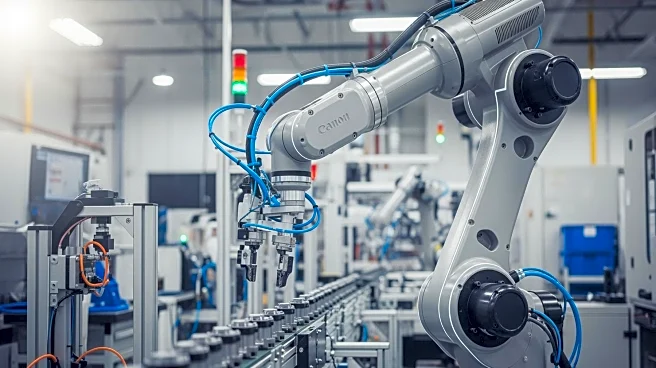What's Happening?
Florida Commerce Secretary Alex Kelly has raised concerns about the aging workforce in the state's manufacturing sector. Speaking before the House Careers and Workforce Subcommittee, Kelly noted that over
50% of Florida's manufacturing workforce is aged 45 or older, which is significantly higher than other sectors. Despite Florida's success in attracting skilled workers and ranking third in the nation for manufacturing companies, the state faces challenges in recruiting younger individuals into the industry. Kelly emphasized the need for policy changes to address this issue, as the current trend is expected to continue until 2035. Business leaders, including Andy Norman of GMF Steel and Eddie Gonzalez Loumiet of Ruvos, echoed these concerns, highlighting the need for public and private efforts to attract young people to trades and improve digital literacy.
Why It's Important?
The aging workforce in Florida's manufacturing sector poses a significant challenge to the state's economic growth and sustainability. As older workers retire, there is a risk of a skills gap that could hinder productivity and innovation. This situation underscores the importance of developing strategies to attract younger workers to the industry, ensuring a steady flow of skilled labor. The issue also highlights the need for educational reforms to better prepare students for careers in manufacturing and related fields. Addressing these challenges is crucial for maintaining Florida's competitive edge in the manufacturing industry and supporting its economic development.
What's Next?
To tackle the aging workforce issue, Florida may need to implement policies that incentivize younger individuals to pursue careers in manufacturing. This could involve enhancing educational programs, offering apprenticeships, and improving the image of manufacturing jobs. Additionally, businesses might collaborate with educational institutions to develop training programs that align with industry needs. The state could also consider revising its approach to economic incentives, focusing on workforce quality and site suitability rather than tax breaks. These steps could help ensure a sustainable and skilled workforce for Florida's manufacturing sector.
Beyond the Headlines
The aging workforce in Florida's manufacturing sector may have broader implications for the state's economy and society. As the industry struggles to attract younger workers, there could be a shift in the types of jobs available, potentially affecting income levels and job security. This situation also raises questions about the role of technology in manufacturing and how it might be leveraged to address workforce challenges. Furthermore, the need for policy changes highlights the importance of government and industry collaboration in shaping the future of work in Florida.










